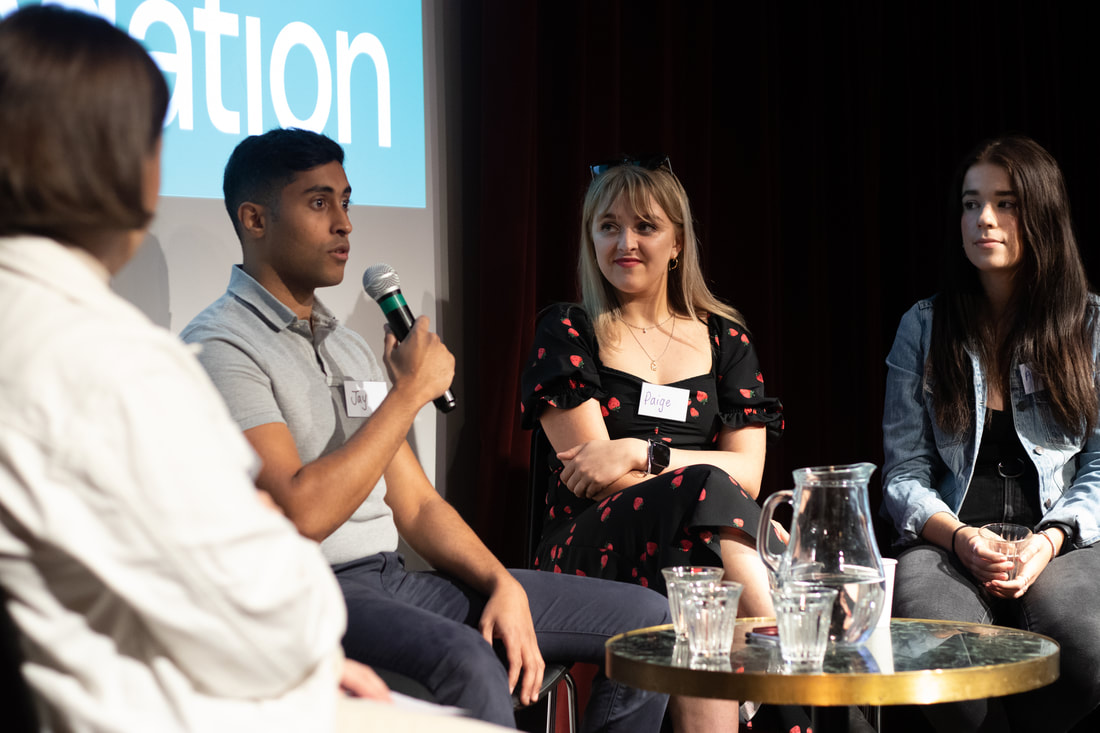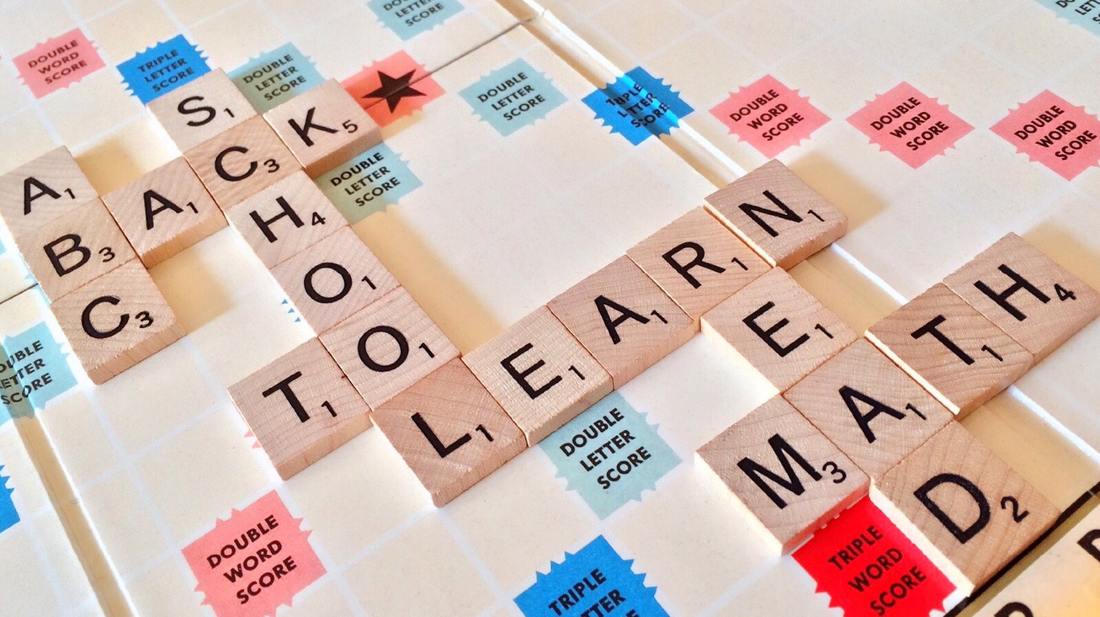|
I’ve always been interested in the ways various projects, events and interests can intersect into a common thread. August 14th marks the date for the partition where India was split by the British Empire into two different countries: India and Pakistan. This blog looks at the partition through the lenses of two of my most recent projects: “Roots” which explored rediscovering the origins of ecology through South Asian identity, and the latest issue of my magazine, SINK, which focuses on what it means to rewild.
0 Comments
Hello, we’re the Unite Foundation and we offer a University Scholarship, specifically for care leavers/care experienced people (if you go to university in Scotland) or young people estranged from their family. We’ve included some definitions at the bottom of this blog to help explain what we mean!
Since it’s March, the month of Easter, baby sheep and daffodils, I thought I’d talk about the importance of education, for women in particular. Oh, and also because of the minor detail of March being Women’s History Month and the month of International Women’s Day. Before we get going, to any guys reading this- please keep reading! Having a blog which talks mainly about women and girls in the education system concerns men as much as it does women.
This article is not for neurodivergent people. Well, you’re welcome to read it, but it’s aimed at neurotypical people. Most of what I’m about to tell you is normal for neurodivergent people, it won’t surprise you. These experiences are common ones. This is hoping to make those who don’t experience these things a little more aware of those of us who do, and how that affects us.
University admissions are something that the majority of us would agree should be a straightforward and fair process but it isn’t always clear (and is a topic up for debate) on how fair that process is currently.
What should be considered in a university application? Well the most obvious is the grades of the applicant, a clear indication of academic ability, but is that all admissions should be judged on? After all, everyone has their own barriers to face in life. At Push we love talking about building resilience from your setbacks and using these as a positive element to your self development. The argument is that these barriers are something that should be considered by universities during admissions. A report by the Nuffield foundation found that, selective universities are increasingly taking into account socioeconomic and educational contexts in which applicants achieved their grades but Vikki Boliver of Durham university argues that universities must be even bolder in their admissions process to ensure that students from disadvantaged and under-represented backgrounds are able to access higher education. A recent BBC study found that the least likely group to go to university is currently white males from low-income families. Only 26% of students from low-income backgrounds have gone on to higher education this year, only half of them were white British males.
Covid-19 has caused a strange feeling in all our stomachs. But as we take it step by step through these trying times, we begin to swallow a little daily positivity, calmness, and taste bits of learning and wellbeing innovation, alongside some large spoonfuls of resilience. Students - you're never alone, and even though it can feel like you are, there are various organisations like Push, plus universities, charities and teachers, working hard online to ensure you know that it is ok to say you're struggling and ok to ask for support...
Nowadays everyone is (or should be) a champion for diversity and inclusivity, but what does that really mean? According to digital tech source, Built In: “Diversity refers to the traits and characteristics that make people unique, while inclusion refers to the behaviours and social normal that ensure people feel welcome.” One example of diversity is those of us who are differently abled, whether that’s a visible or invisible disability, and making sure that we feel included, represented and involved in society. But how can we do that? You might have heard the Prince’s Trust’s name thrown about before, but who are they and what do they do?
According to their website, the Prince’s Trust is a charity set up by Prince Charles over 40 years ago with the mission ‘to help young people transform their lives by developing the confidence and skills to live, learn and earn.’. The charity helps school leavers and young people to develop their soft skills, get additional training and provides tips and resources on getting a job. For the budding entrepreneurs among us, they also offer training, mentoring and funding to help you start your own business. When you’re deciding what would be the perfect career for you. Who do you turn to? There’s so many options available to us now that it seems so easy to hunt down what interests you and how you might go around turning that into a career.
While the options available to us all to find that perfect job are more than ever, new research by the OECD International economics think tank could show that we’re starting to already limit ourselves by the age of seven. Diversity in companies is an extremely important issue in 2019, as I’m sure we can all agree. Companies are taking different methods to boost members of the BAME (Black, Asian & minority ethnic) community as well as trying to bridge the gender gaps in their workforces - to equip themselves for the 21st Century, and an ever-connected world of cultures.
One way employers are attempting to boost this is by setting no minimum entry grades for their graduate recruits. This strategy has more than doubled in the past 5 years going from 7% of ISE employers in 2014 to 22% in 2019. The amount of employers wanting a 2:1 degree has also dropped in this period from 67% to 57%. Here at Push, we can’t celebrate our differences enough. It’s what makes us all so interesting, able to see the world in new, abstract ways to solve all sorts of problems, and to come together as strong, diverse teams.
A world full of identical people with identical thoughts is, well, not worth thinking about. Want us to put our money where our mouth is? Head to our YouTube channel for a quick-fire rundown from Ben, one of our presenters—he talks about making the most of your individuality and quirks, and discusses how he turned his dyslexia into an award-winning strength. But we get it. Sometimes, the world isn’t always geared up to help and support differences. You might have heard in the last year or two sportswear giants like Nike were making controversial waves by releasing the first forward-thinking, breathable sports hijabs for female Muslim athletes.
The special hijabs, though innovative and a positive step forward in terms of inclusivity in sport, came with a fairly steep price tag. That’s why Brunel University have been praised for the new addition to their university sports kit - the ‘Brunel Blue’ sports hijab, in two sizes. And at £15 a pop, they’re almost 40% cheaper than the kit sold by Nike. In the world we live in, it’s increasingly more valuable to be as internationally minded as you possibly can.
And no, we don’t mean that you should be mixing up your weekly tikka masala order, and would be better off getting the occasional Chinese or Italian takeaway instead. Being internationally minded - where you’re open to different cultural behaviours and attitudes, and can embrace new ideas from beyond your bubble - is a crucial and invaluable attribute. If you try to put your finger on the education background of someone in a senior position in the government, chances are a few things would spring to mind.
Private school education, for starters. An Oxbridge degree would be no surprise. That’s what we’d all expect, right? Well, shadow education secretary Angela Rayner’s background might come as a bit of a shock to you. As we like to say at Push, higher education isn’t for everyone. Different people have different strengths and this means different routes to their ideal careers.
Neither of my parents took academic routes into their jobs; In fact I was the very first member of my family to go to university. This may be the same for you and I agree, at first it may seem quite daunting, but you shouldn’t worry... We’re lucky that mental health awareness is ever improving, and the stigmas and taboos are slowly being lifted. But that doesn’t mean we live in a perfect mental health utopia, so it’s important to look out for yourself and plan ahead if uni’s in the cards for you.
One of the most important things to do if you suffer with your mental health is to look out for universities who have a strong support network for students and their mental health issues. Think you’ve missed the boat if you don’t head straight from college to uni? These days, that can’t be any further from the case. The stereotypical student may be late teens, early 20s, but the world of higher education is opening up more and more to mature students from all ages.
School is no walk in the park. Neither is college, or uni for that matter. Things can be even harder for a lot of us who focus, learn, and engage in different ways. Disorders such as dyslexia, dyspraxia and ADHD are treated far more seriously in the classroom now than they ever have been, but that doesn’t mean that the education system is perfect. Finding things difficult? Not only can you ask your parents, teachers and tutors for extra support, but there are loads of online resources available to you to help you understand your best learning style and how to adapt your studies.
If you read anything in a tabloid newspaper, you'd think that the young people of today are nothing but delicate little "snowflakes" – offended by everything, right down to the ever-rising price of avocados.
You only have to talk to a real-life young person to know that's not the case. An entire university study has been dedicated to the idea of Generation Snowflake, and you won't be surprised to find that it's an exaggerated, over-generalised load of nonsense. Okay, maybe not the avocado part. C'mon, we've got to have some nice things. Researches from the University of Leeds' Institute for Teaching interviewed 55 undergrads as part of their study into student resilience, and had another 185 complete survey questionnaires. Students were asked what they thought about the snowflake generation - students who were "quick to take offence and too emotionally vulnerable to cope with views that challenge their own", and also the idea of 'trigger-warnings' - where individuals are notified of potentially distressing content before being exposed to it. Surprisingly, large numbers of students hadn't even heard of the term 'snowflake generation' or even 'trigger-warnings', and if they were aware of the concept, it wasn't usually in terms of education and more in terms of internet use. Rather than the negative associations, where 'trigger-warnings' are viewed as a form of censorship, the participating students largely agreed that the warnings allowed them to be prepared for potentially disturbing content, rather than choosing not to engage with it at all. Overall, the participants "were likely to say that they could see some truth in ['snowflake generation'], but that it was an unfair, sweeping label for an eclectic group of people." We've all heard it, right? The dreaded millennial Catch-22: to get experience, you need a job. To get a job, you need experience.
Unsurprisingly, high numbers of young people in the UK go through long unpaid placements, internships and work experience programmes to gain the experience required for their first full-time job. This may seem like an inevitable link in the career chain, but for many, unpaid internships are a pretty crappy thing. Primarily, unpaid placements work only on the basis that you have significant savings to support you while you're working for (optimistically) experience, or (pessimistically) nothing. So you're thinking of heading across the pond for uni? You wouldn't be the first – many have been drawn in by the glitz and the glam of Hollywood, bright lights of the city that never sleeps, the beaches, deserts, snowy mountains and just about everything in between.
And it's far from impossible to study your undergrad degree in the US, but it's not easy. And it's definitely not cheap. |
This section will not be visible in live published website. Below are your current settings: Current Number Of Columns are = 1 Expand Posts Area = Gap/Space Between Posts = 15px Blog Post Style = card Use of custom card colors instead of default colors = Blog Post Card Background Color = current color Blog Post Card Shadow Color = current color Blog Post Card Border Color = current color Publish the website and visit your blog page to see the results Categories
All
We're always interested to hear from talented young writers, so if you'd like to feature as a guest author then hit us up for more details.
|
Student blog: What's new?
Author
Write something about yourself. No need to be fancy, just an overview.
This website uses marketing and tracking technologies. Opting out of this will opt you out of all cookies, except for those needed to run the website. Note that some products may not work as well without tracking cookies.
Opt Out of Cookies






















 RSS Feed
RSS Feed